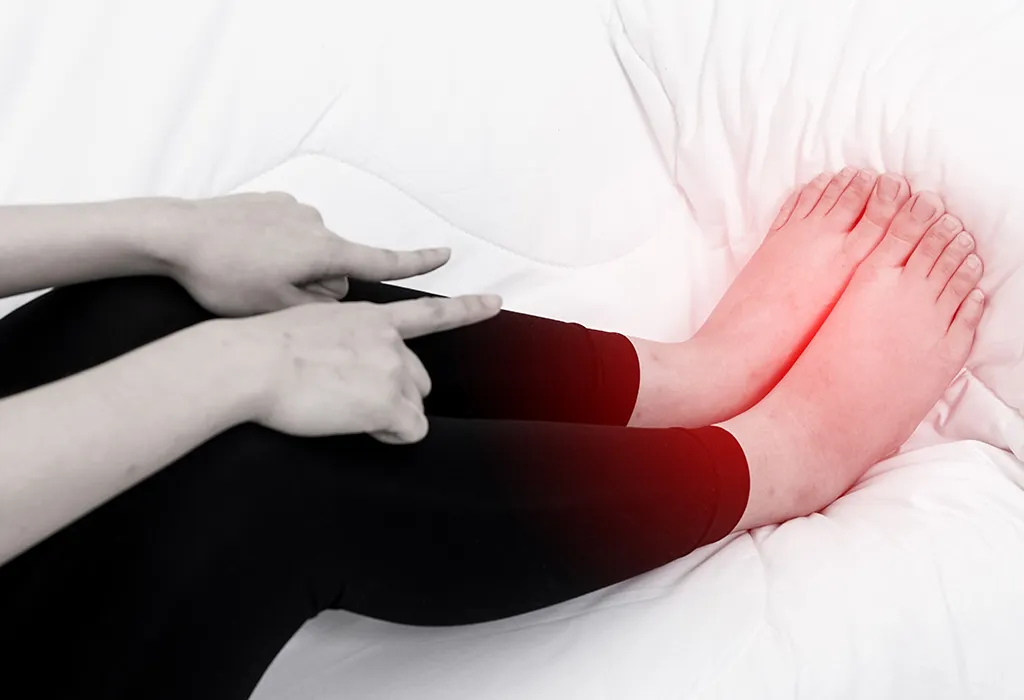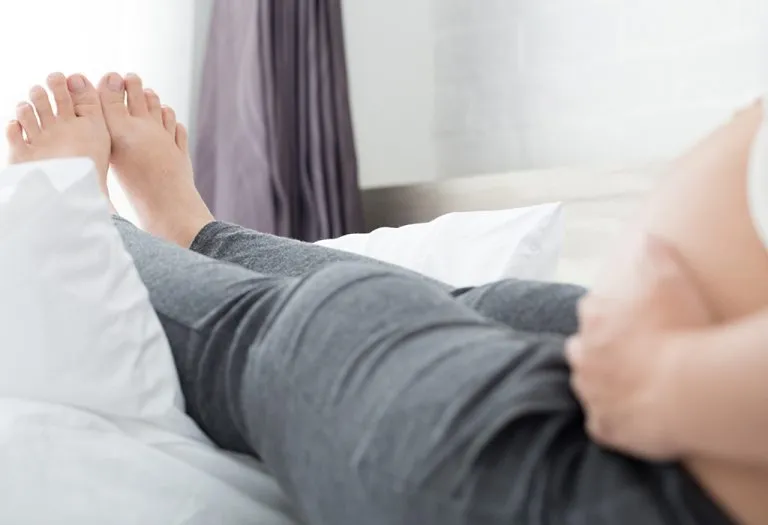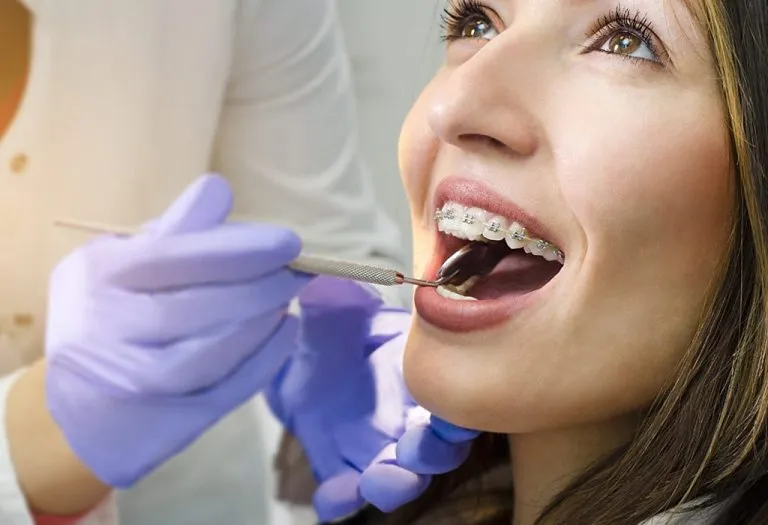Swelling During Pregnancy – Causes, Remedies and Prevention

- Why Do Women Have Swelling in Their Hands, Feet, and Ankles During Pregnancy?
- How Common Is Oedema During Pregnancy?
- When Does Oedema Occur?
- Causes of Edema in Pregnancy
- Risks of Swelling While Pregnant
- When Should You Be Concerned About Swelling During Pregnancy?
- Remedies for Swelling During Pregnancy
- How to Prevent Swelling While Pregnant?
- When to Consult the Doctor
- FAQs
Pregnancy is a magical phase of a woman’s life. If you are pregnant, you will enjoy the love and attention you will get from your loved ones, but there are some symptoms of pregnancy that might make your life difficult, thus making your pregnancy phase not so enjoyable. As your body changes, you may feel a bit uncomfortable. One discomfort that you may experience in pregnancy is swollen body parts. About 50% of all pregnant women have swelling in their leg region, including the feet and ankles, particularly in the last few months of pregnancy, which makes their pregnancy journey difficult. Read on to learn about swelling in pregnancy and why women have swollen feet or ankles during pregnancy.
Why Do Women Have Swelling in Their Hands, Feet, and Ankles During Pregnancy?
During pregnancy, a woman’s body makes fifty per cent more bodily fluids to provide for the developing baby’s needs; these fluids can cause swelling. During pregnancy, approximately twenty-five per cent of the weight gain in women is due to extra fluids. And you may notice oedema or normal swelling in your legs, ankles, and feet during this time.
How Common Is Oedema During Pregnancy?
Oedema (swelling) during pregnancy is quite common. You may notice swelling in your legs and feet, especially in the last trimester of your pregnancy. It commonly occurs, especially in the last few months of pregnancy, due to the water retention in your body, which happens because of an increase in overall blood volume in the body.

When Does Oedema Occur?
Oedema can happen any time during pregnancy, but it is mostly noticed in the 5th month and can rise in the 3rd trimester. The following factors may also affect oedema (swelling) during pregnancy:
- Standing for long periods of time
- Hot weather
- Long days of physical activity
- Too much consumption of sodium
- Low in potassium diets
- Constant intake of caffeine
Causes of Edema in Pregnancy
The main cause of swelling in the body is water retention. Water retention can cause swelling of legs during pregnancy. Changes in the blood volume. The growing uterus will add stress on the pelvic veins and vena cava. The blood will slow down in the legs due to this pressure causing some of it to stagnate. This will force the fluid from the veins into the tissues of the feet and ankles. The ability to excrete water is lowered. Women with excessive amniotic fluid or carrying multiples might notice severe swelling. It might get worst at the end of the day and during summers. The swelling, however, should quickly disappear after the delivery when the body eliminates the fluid. You might also find yourself going to the bathroom more often to pee and sweat a lot in the first few days post-delivery.
Risks of Swelling While Pregnant
If the swelling in the legs and feet caused by oedema is mild, then it is normal and harmless. In some cases, pregnant women don’t even experience noticeable swelling. However, if your hands and/or face swells and the swelling persists for more than a day at a time, you must consult your doctor. Exorbitant oedema during pregnancy can be one of the signs of preeclampsia. It might also be accompanied by symptoms like elevated blood pressure, rapid weight gain, and protein in the urine. You don’t need to worry if your blood pressure and urine tests are normal.
When Should You Be Concerned About Swelling During Pregnancy?

Having mild swelling in the feet, ankles, or legs is not out of the ordinary. In fact, some may experience mild swelling in their hands as well. However, you should call your doctor immediately if you have these symptoms of preeclampsia:
- Puffiness around the eyes
- Facial swelling
- Large or/and spontaneous swelling of feet or ankles
- Excessive swelling in the hands
- Dizziness
- Blurred vision
Contact your physician If either leg is swollen more than the other and if there is pain or tenderness in the calf or thigh, as it could be a sign of a blood clot.
Remedies for Swelling During Pregnancy
There are some treatment measures that you can try to get rid of the swelling.
Contemporary Therapies or Medical Treatments

- Aromatherapy: Cypress oil is beneficial for the circulatory system whereas lavender oil with chamomile oil can help you relax.
- Osteopathy: It treats misalignments in the skeleton, which might be putting pressure on specific areas of the body.
- Get a Massage: Getting a massage along the contours of the feet will help circulate the fluids accumulated in your feet, which will reduce swelling. You can use lavender essential oil for massage – it will help relax you!
Remedies You Can Try at Home
Here are some tips or remedies that you can try at home to reduce swelling in your legs and feet.
- While sitting, avoid crossing your legs or ankles and keep stretching them from time to time.
- Put your feet up as much as possible.
- Stretch out your leg with the heel first then gently flex your feet to relax your calf muscles. Keep rotating your ankles and wiggle your toes.
- Stay hydrated by drinking plenty of water and other fluids.
- Avoid sitting or standing in the same position for too long.
- Take short walks to prevent the blood from accumulating in the lower parts of your body.
- Put on loose shoes that can stretch to accommodate the swelling in the feet.
- Wear high-waist maternity support stockings the moment you wake up so that the blood doesn’t stagnate around the ankles.
- Avoid wearing socks or stockings that have tight bands around the ankles or calves.
- Make sure that you exercise daily, even if it is just for half an hour. You can practice yoga, walk, or swim. Water aerobics is also a good option as being in water can help reduce swelling temporarily, especially if the water is up to your shoulders.
- Adopt a healthy lifestyle by choosing a healthy diet and avoiding eating junk food.
How to Prevent Swelling While Pregnant?
Severe swelling can be prevented by adopting a healthy lifestyle. Exercise daily and have a balanced diet. Remember that your diet should comprise foods rich in protein, such as meat, eggs, fish, pulses or beans. Five portions of fruits are also a must. You should limit the consumption of foods rich in salt, sugar, or fats. Foods rich in Vitamin C and E, such as citrus fruits, red peppers, melons, potatoes, sunflower seeds, or sweetcorn, are good during pregnancy, so include these in your diet and avoid eating junk food!
When to Consult the Doctor
While mild swelling is usually harmless, certain symptoms might indicate an underlying condition that needs medical attention. Here are the key signs to watch out for:
- Sudden or severe swelling: Rapid swelling in the hands, feet, face, or around the eyes can be a sign of preeclampsia and requires immediate medical consultation.
- Persistent swelling: Swelling that does not reduce even after resting or elevating your legs could indicate an underlying issue.
- Accompanied by headaches or vision changes: If swelling is paired with severe headaches, blurred vision, or light sensitivity, it could signal a serious problem like preeclampsia.
- Painful swelling in one leg: This may indicate deep vein thrombosis (DVT), especially if accompanied by redness, warmth, or tenderness in the affected area.
- Shortness of breath or chest pain: Swelling coupled with difficulty breathing or chest pain could be a sign of fluid retention affecting the lungs or a blood clot, which requires urgent attention.
- Decreased urine output: If swelling is accompanied by reduced urine production, it might point to kidney or other systemic issues that need evaluation.
FAQs
1. Can swelling in pregnancy affect only one side of the body?
Yes, swelling that affects only one side of the body, especially one leg, could indicate deep vein thrombosis (DVT). This is a serious condition where a blood clot forms in a deep vein, often in the leg, and requires immediate medical attention.
2. Is swelling in pregnancy linked to allergies?
Although rare, swelling in pregnancy- first, second and third trimester can sometimes be triggered by allergies or reactions to certain foods, medications, or insect bites. This type of swelling, known as angioedema, usually occurs alongside itching or hives.
3. Can dehydration cause swelling during pregnancy?
Surprisingly, dehydration can contribute to swelling during pregnancy. When the body is dehydrated, it retains more water to compensate, leading to increased swelling, especially in the extremities.
Having swollen feet or ankles can be irksome during pregnancy, but don’t let it get you down. Oedema in pregnancy is a common problem and it should subside soon after delivery. Try the remedies mentioned above if you have mild swelling in your feet and ankles. However, if you notice any symptoms of preeclampsia, consult a doctor at the earliest.
References/Resources:
1. Swelling during pregnancy; Pregnancy, Birth & Baby; https://www.pregnancybirthbaby.org.au/swelling-during-pregnancy
2. Swelling During Pregnancy; American Pregnancy Association; https://americanpregnancy.org/healthy-pregnancy/pregnancy-health-wellness/swelling-during-pregnancy/
3. Swelling During Pregnancy; Penn Medicine Lancaster General Health; https://www.lancastergeneralhealth.org/health-hub-home/motherhood/your-pregnancy/swelling-during-pregnancy
4. Dealing With Swollen Ankles During Pregnancy; Nemours Kids Health; https://kidshealth.org/en/parents/ankles.html
5. Edema; Mayo Clinic; https://www.mayoclinic.org/diseases-conditions/edema/symptoms-causes/syc-20366493
6. Signs and Symptoms of Urgent Maternal Warnings Signs; CDC; https://www.cdc.gov/hearher/maternal-warning-signs/index.html
7. Edema; Cleveland Clinic; https://my.clevelandclinic.org/health/diseases/12564-edema
Also Read:
Pregnancy Nose Swelling
Swollen Lymph Nodes in Pregnancy
Vaginal Swelling while Pregnant
Home Remedies for Swollen Feet during Pregnancy
Was This Article Helpful?
Parenting is a huge responsibility, for you as a caregiver, but also for us as a parenting content platform. We understand that and take our responsibility of creating credible content seriously. FirstCry Parenting articles are written and published only after extensive research using factually sound references to deliver quality content that is accurate, validated by experts, and completely reliable. To understand how we go about creating content that is credible, read our editorial policy here.




































